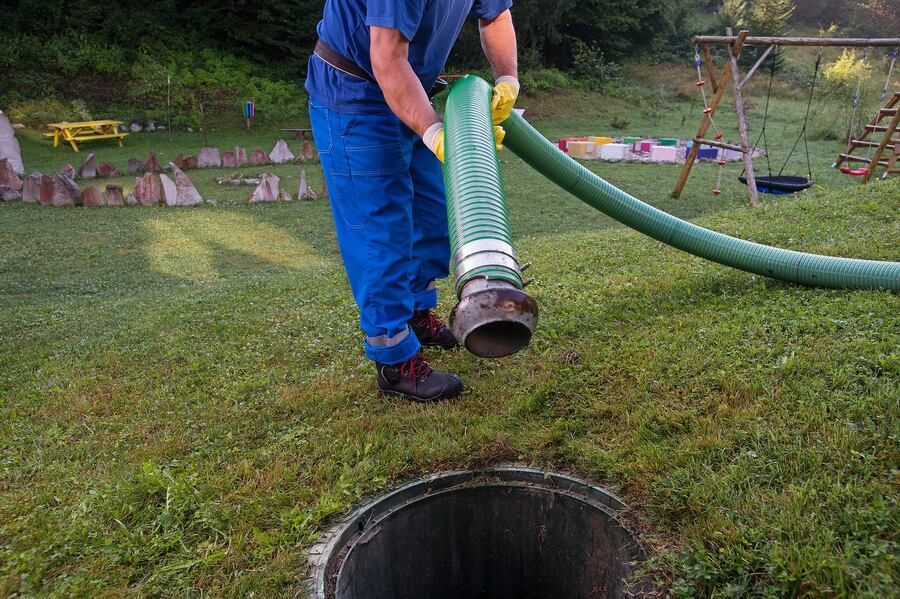
03
If you’re new to homeownership and have a septic system, you might be wondering what septic tank pumping is and why it’s so important. Unlike homes connected to a city sewer system, a septic system requires regular maintenance to function properly. Without routine care, you could face unpleasant issues like sewage backups, foul odors, and even system failure. This guide will walk you through the basics of septic tank pumping, how often you need it, the benefits of septic tank cleaning, and why proper septic tank installation is crucial.
Your septic tank is responsible for collecting and breaking down waste from your home. Over time, solid waste accumulates at the bottom of the tank, forming sludge. Lighter materials, such as grease and soap, float to the top as scum, while the middle layer contains treated wastewater that flows into the drain field.
Septic tank pumping in Huntersville is the process of removing the built-up sludge and scum to prevent blockages and system failures. This ensures your septic system operates efficiently and continues to dispose of waste safely.
The frequency of septic tank pumping depends on several factors.
On average, experts recommend septic tank pumping every 3–5 years. However, if you notice slow drains, bad odors, or standing water near your drain field, it may be time for a pumping service.
While septic tank pumping and septic tank cleaning are often used interchangeably, there is a slight difference between the two. Septic tank pumping removes the liquid and some solid waste from the tank. Septic tank cleaning is a more thorough process that removes all the sludge, scum, and liquid waste, leaving the tank completely empty.
Routine septic tank cleaning helps prevent buildup and prolongs the life of your septic system. If your tank hasn’t been cleaned in a long time, consider scheduling a deep clean to restore optimal performance.
If you’re building a new home or replacing an old system, a proper septic tank installation is essential. A well-installed system will function efficiently, reduce the risk of leaks or failures, and comply with local health regulations. Key considerations for septic tank installation include:
A poorly installed septic tank can lead to frequent problems, high repair costs, and environmental hazards. Investing in professional septic tank installation from the start can save you money and stress in the long run.
Keeping your septic system in top condition doesn’t have to be complicated. Follow these simple maintenance tips.
Understanding the basics of septic tank pumping, cleaning, and septic tank installation is key to keeping your system running efficiently. Regular maintenance prevents costly repairs and ensures your home’s wastewater is handled safely.
If you’re unsure when your last septic tank cleaning was or need professional help, don’t hesitate to contact Charlotte Septic Pros. A well-maintained septic system will keep your home running smoothly for years to come.

22
Can Bacteria Additives Eliminate the Need for Pumping? If you own a home with a septic system, you’ve probably seen…
Read more
12
A single slow drain in your home can feel like a minor inconvenience. Maybe the sink takes a little longer…
Read more
05
Are Slow Drains a Septic Issue or Just a Clog? Slow drains are one of those household problems that start…
Read more
02
What Septic Service Techs See That Homeowners Miss Most homeowners only think about their septic system when something goes wrong.…
Read more
21
Simple Habits That Protect Your Septic System A well-functioning septic system does its job quietly, but the moment something goes…
Read more
14
Pump Now or Pay Later: The Real Cost of Skipping Maintenance A properly functioning septic system is easy to forget…
Read more
11
Why Your Septic System Always Acts Up at the Worst Time Homeowners often feel that septic problems strike at the…
Read more
04
Early Warning Signs Your Septic Tank Needs Pumping For homeowners who rely on a septic system, routine maintenance is not…
Read more
29
Why Does My Septic System Smell Fine One Day and Terrible the Next? If you own a home with a…
Read more
19
Is Your Septic System Overdue? Simple Home Checks You Can Do Today For many homeowners, the septic system is a…
Read more